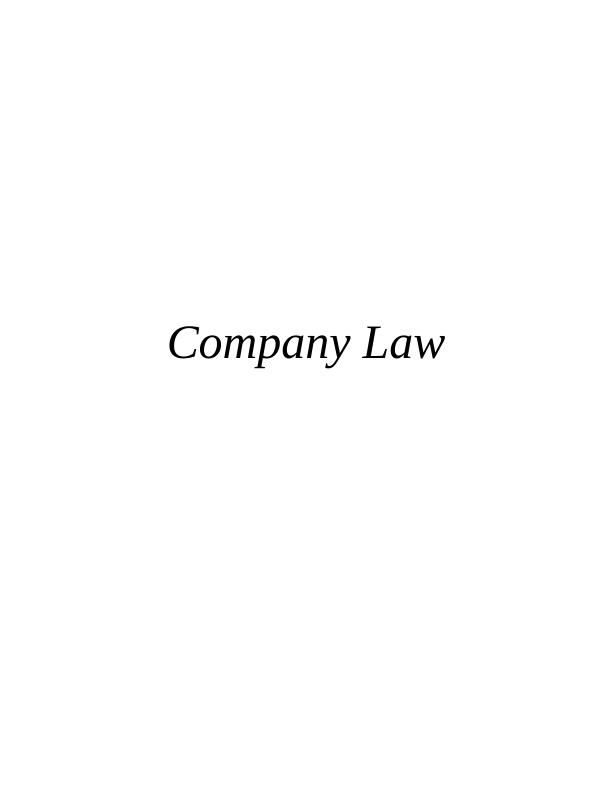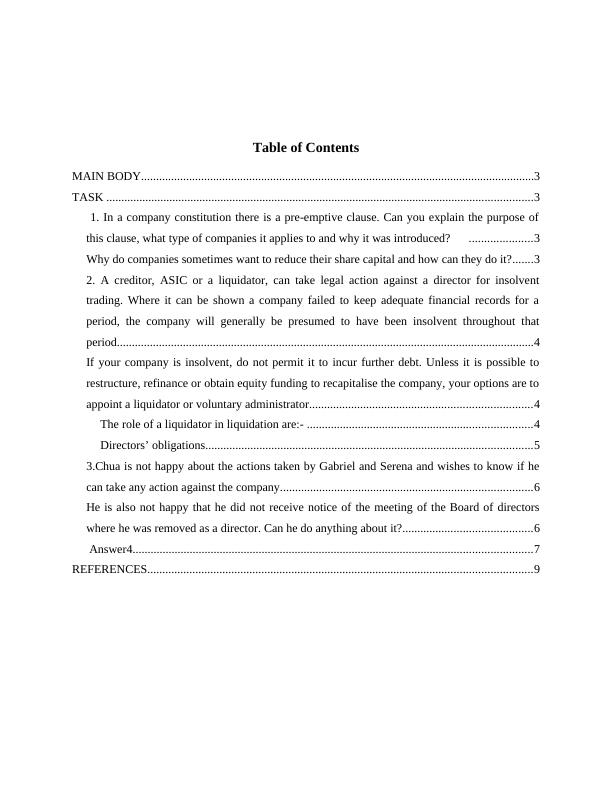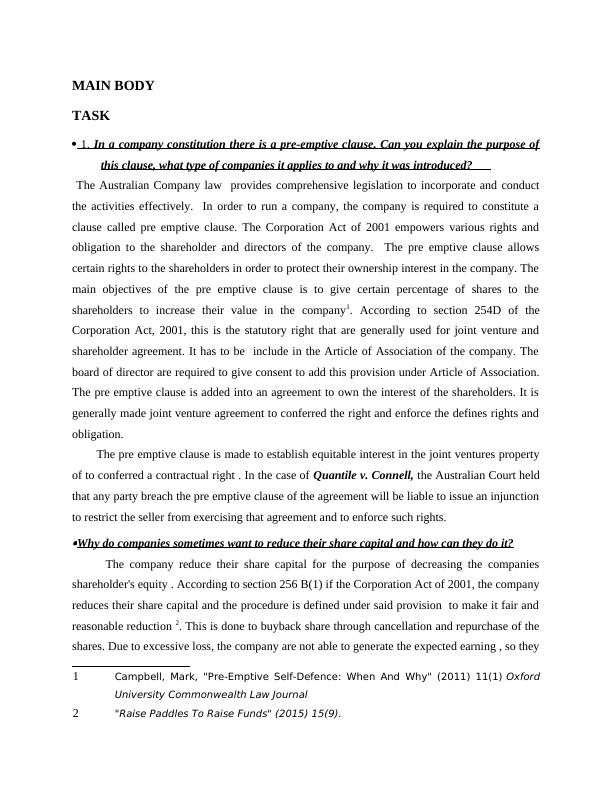Company Law: Pre-emptive Clause, Share Capital Reduction, Insolvent Trading, Director's Obligations, and Fundraising Methods
9 Pages2594 Words180 Views
Added on 2023-06-09
About This Document
This article discusses various aspects of company law, including the purpose of pre-emptive clause, the procedure for reducing share capital, legal actions against directors for insolvent trading, and fundraising methods. It also covers the obligations of directors and the rights of shareholders in a company. The article provides relevant sections of the Corporation Act of 2001 and case laws to support the discussion.
Company Law: Pre-emptive Clause, Share Capital Reduction, Insolvent Trading, Director's Obligations, and Fundraising Methods
Added on 2023-06-09
ShareRelated Documents
End of preview
Want to access all the pages? Upload your documents or become a member.
BULAW2611 Assignment on Organisation Law
|9
|2185
|57
The Australian Insolvency Law
|8
|2483
|118
Company Law Assignment (Doc)
|9
|1990
|37
Business Law
|4
|571
|87
Duties and Obligations of Directors in Corporations: A Comparative Analysis of Section 172 of the Companies Act, 2006 and Section 181 of the Corporations Act, 2001
|10
|2906
|222
Law of Business Associations
|11
|2390
|38



